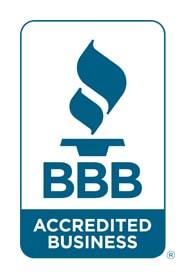HVAC Installation, AC Service, Air Conditioning Installation, AC Repair & Heating RepairTampa, FL, North Port, FL, Town 'n' Country, FL, Port Charlotte, FL, Punta Gorda, FL & Englewood, FL
Florida is well-known for its heavy rainfall, especially during the summer months. While the rain can be refreshing, it can also have a significant impact on your home’s HVAC system. Understanding these effects and taking the necessary precautions can help you maintain a comfortable, efficient home. Here’s how Florida’s heavy rainfall can affect your HVAC system, along with some essential maintenance tips to keep everything running smoothly.
The Impact of Heavy Rainfall on Your HVAC System
1. Flooding and Water Damage – Prolonged or heavy rainfall can lead to flooding, especially in low-lying areas. If your outdoor HVAC unit is in a flood-prone area, it’s at risk of water damage. Flooding can damage electrical components, corrode metal parts, and cause the system to short-circuit.
2. Debris Build-Up – Heavy rain often brings with it debris, such as leaves, dirt, and twigs. This debris can accumulate around your outdoor unit, blocking airflow and causing the system to work harder to cool your home. Over time, this can lead to decreased efficiency and potential damage to the unit.
3. Increased Humidity – Florida’s rain not only cools the air but also raises humidity levels. High humidity can place additional strain on your HVAC system, as it has to work harder to remove moisture from the air. This can lead to wear and tear on the system and increased energy consumption.
4. Mold and Mildew Growth – The combination of rain, humidity, and warm temperatures creates an ideal environment for mold and mildew growth, especially on your HVAC system’s coils. Mold on the coils can reduce the efficiency of the system, cause unpleasant odors, and negatively impact indoor air quality.
Essential HVAC Maintenance Tips for Rainy Seasons
1. Elevate Your Outdoor Unit – If your home is in a flood-prone area, consider elevating your outdoor HVAC unit on a concrete hurricane pad. Raising the unit off the ground can protect it from potential water damage during heavy rains. Please contact Total Air Solutions for a Hurrican Pad installation quote.
2. Clear Debris Regularly – After a storm, check your outdoor unit for debris and clear it away promptly. Keeping the area around your unit clean and free of obstructions ensures proper airflow and helps maintain the system’s efficiency.
3. Check the Drainage – Ensure that the area around your outdoor unit has proper drainage to prevent water from pooling. Check the condensate drain line regularly to ensure it’s not clogged, as a blocked drain can lead to water back-up and damage to your system.
4. Install a Blue Light to Prevent Mold Growth – One effective way to combat mold and mildew growth on your HVAC system’s coils is by professional installation of a blue light, also known as a UV light. These lights are designed to kill mold spores, bacteria, and other microorganisms that can thrive in the moist environment of your HVAC system. By installing a blue light, you can help keep your coils clean, improve your system’s efficiency, and enhance the indoor air quality in your home.
5. Monitor Indoor Humidity Levels – Consider using a dehumidifier during particularly rainy periods to help reduce the strain on your HVAC system. Maintaining indoor humidity levels between 30-50% can help prevent mold growth and make your home more comfortable.
The Importance of Routine HVAC Maintenance
While these tips can help you manage the effects of heavy rainfall on your HVAC system, the best way to ensure your system is operating efficiently year-round is through regular professional maintenance. At Total Air Solutions, we recommend scheduling maintenance every six months. This routine service allows our technicians to catch and address potential issues before they become costly problems, ensuring your system is ready to handle Florida’s unique weather challenges.
Our maintenance services include checking and cleaning the coils, inspecting the drainage system, clearing debris, and ensuring the system is running at peak efficiency. We also offer UV light installation to help combat mold growth on your HVAC system’s coils, keeping your home’s air clean and healthy. Don’t let Florida’s heavy rains compromise your comfort. Trust Total Air Solutions to keep your HVAC system in top shape, rain or shine!
Heating Service ∴ HVAC Installation ∴ Air Conditioning Installation ∴ AC Service ∴ HVAC Company ∴ Tampa, FL ∴ North Port, FL ∴ Port Charlotte, FL









